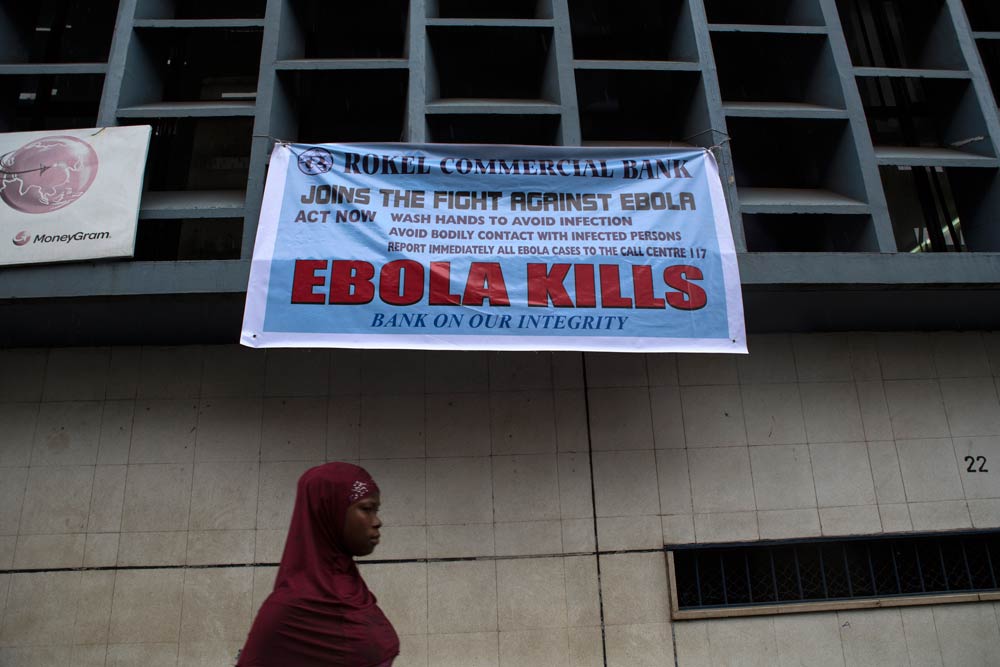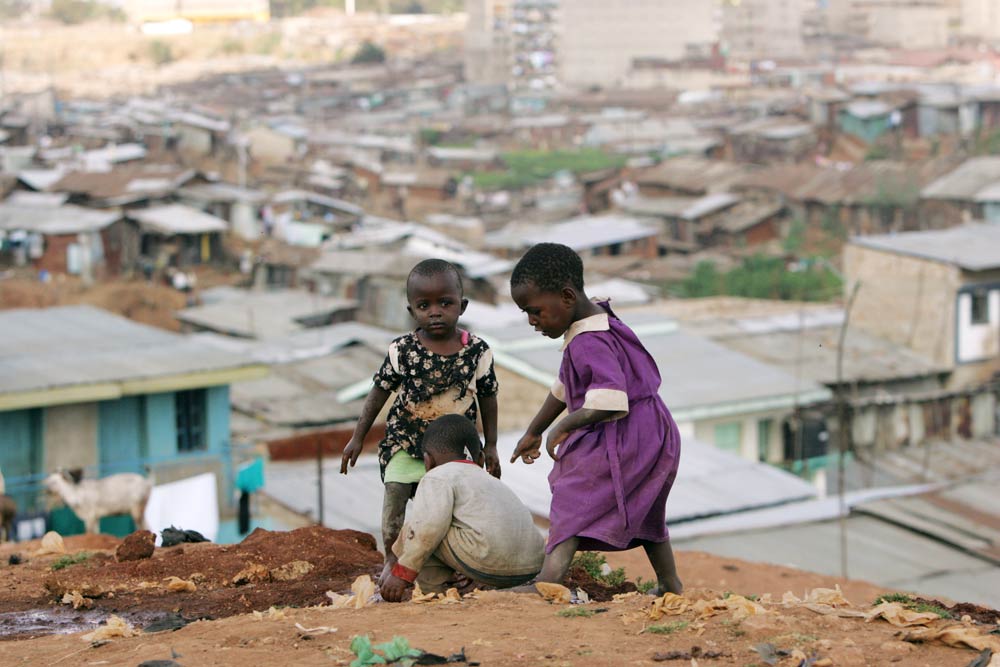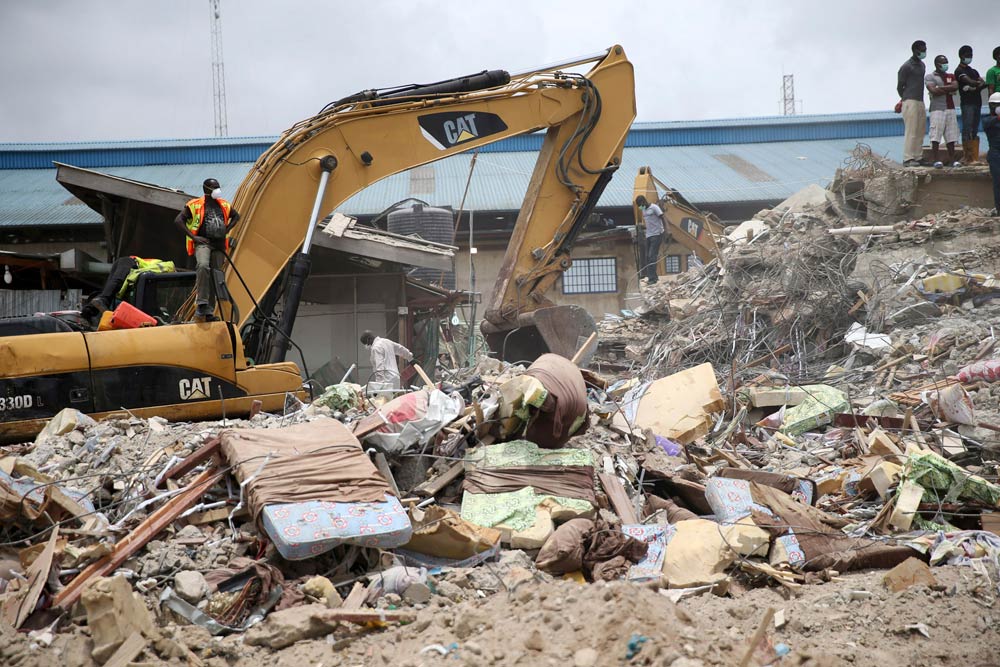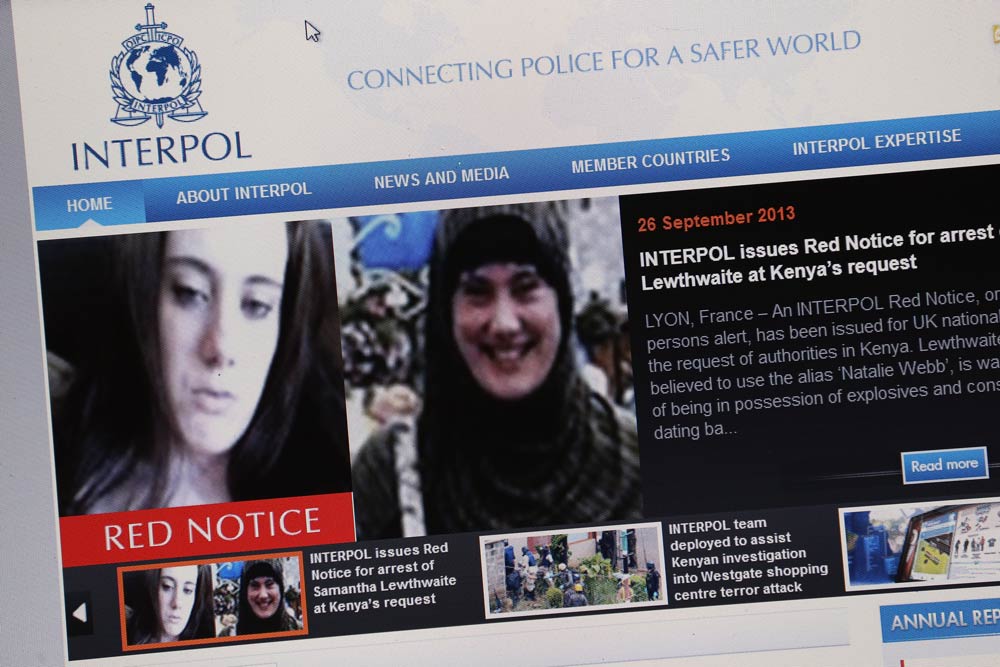
Sierra Leone has ordered the quarantine “with immediate effect” of three districts and 12 tribal chiefdoms – affecting more than one million people – in the largest lockdown in west Africa’s deadly Ebola outbreak.
President Ernest Bai Koroma, in a national televised address late on Wednesday, announced that the northern districts of Port Loko and Bombali were to be closed off along with the southern district of Moyamba – effectively sealing off around 1.2-million people.
With the eastern districts of Kenema and Kailahun already under quarantine, more than a third of the population of six million, in five of the nation’s 14 districts, now finds itself unable to move freely.
“The isolation of districts and chiefdoms will definitely pose great difficulty but the lives of everyone and the survival of our country takes precedence over these difficulties,” Koroma said.
“These are trying moments for everyone in the country.”
The deadliest Ebola epidemic on record has infected almost 6 000 people in west Africa and killed nearly half of them, according to the World Health Organisation’s latest figures.
The virus can fell its victims within days, causing rampant fever, severe muscle pain, vomiting, diarrhoea and — in many cases — unstoppable internal and external bleeding.
In Sierra Leone, Ebola has infected 1 813 people, killing 593, by the WHO count.
Koroma said that 12 of the county’s 149 tribal chiefdoms – much smaller administrative areas than districts – were also to be placed in quarantine. The total population in these areas was not immediately clear.
The president said corridors for travel to and from non-quarantined areas had been established but would only operate between 9:00 am and 5pm.
“The Ministry of Health and Sanitation and the emergency operation centre will establish additional holding centres in the quarantined chiefdoms,” Koroma said.
Death toll
Sierra Leone announced on Wednesday that around 100 bodies and 200 patients had been collected from homes during a nationwide three-day lockdown and house-to-house information campaign which ended on Sunday.
“To sustain our efforts in overcoming the challenges that were further revealed during the house-to-house campaign and in consultation with our partners – and in line with our people’s avowed commitment to support extra measures to end the Ebola outbreak – the government decided to institute these further measures,” Koroma added.
The WHO said earlier this week 5 864 people had been infected since the virus first emerged in southern Guinea in December, and that 2 811 had died.
In Liberia, which has been hit hardest by the outbreak, 3 022 people have been infected and 1 578 have died while in Guinea, Ebola has infected 1 008 people, killing 632.
Nigeria has recorded 20 cases, including eight deaths, since the virus first arrived in the country with a Liberian finance ministry official, who died in Lagos on July 25.
Guinea’s President Alpha Conde and cabinet ministers from Liberia and Sierra Leone were due to attend a meeting in New York on Ebola convened by United Nations Secretary-General Ban Ki-moon later Thursday.
The meeting – part of the United Nations General Assembly – will hear from US President Barack Obama and world leaders are expected to pledge help for efforts to try to contain the spread of the virus.
Nigerian President Goodluck Jonathan appeared to jump the gun on medical advice at home on Wednesday to tell an applauding UN that Nigeria was free of Ebola.
“We can confidently say that today Nigeria is Ebola free,” Jonathan told the largest diplomatic gathering in the world to a ripple of applause in New York.
“Nigeria is Ebola free,” he said a second time to further applause.
Doctors said earlier they would have to wait to declare the outbreak over despite the Nigerian federal health ministry saying all patients being monitored for the virus had been cleared.
Rod Mac Johnson for AFP








